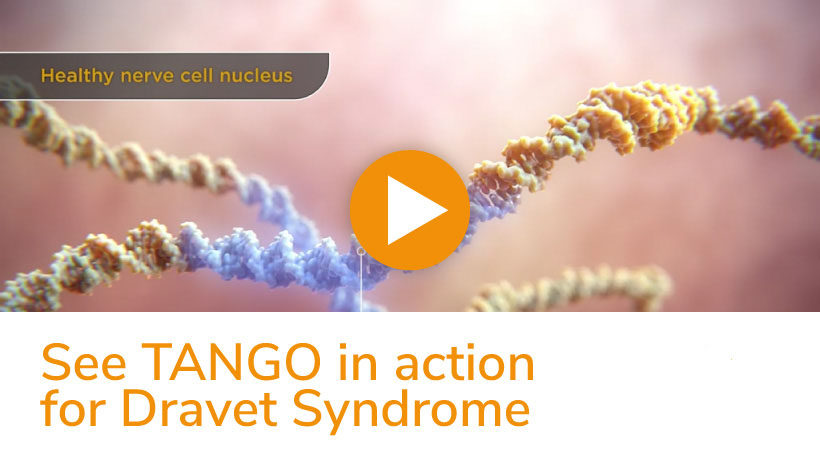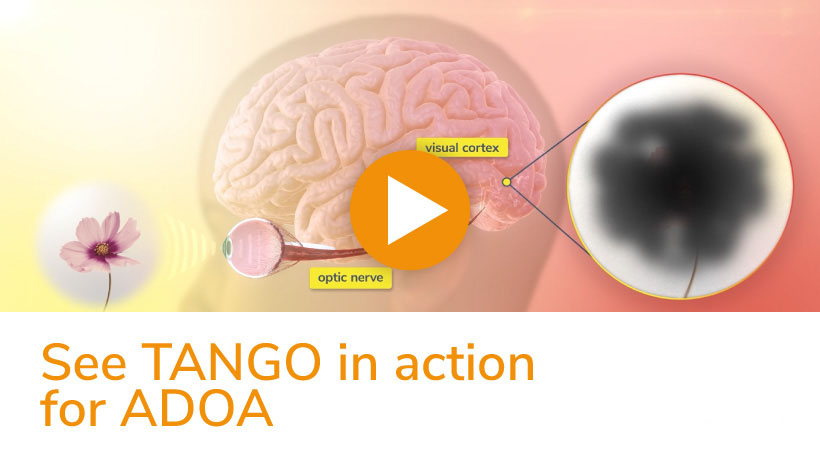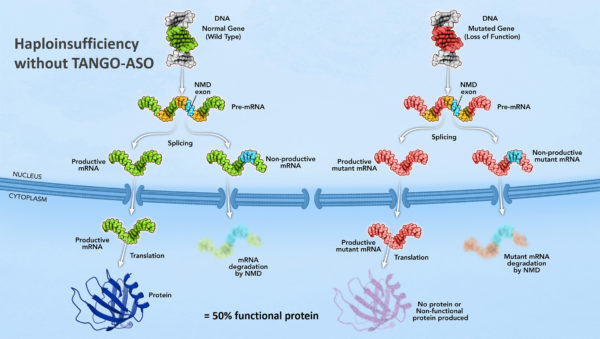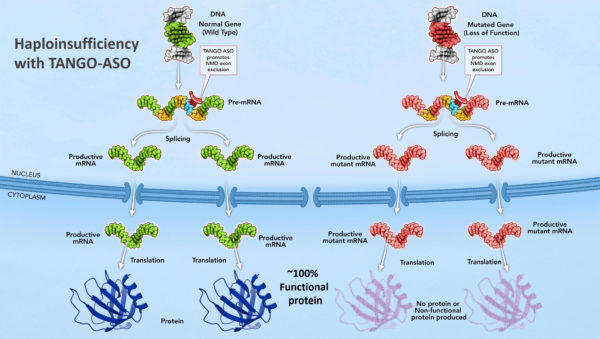Ability to address underlying cause of disease
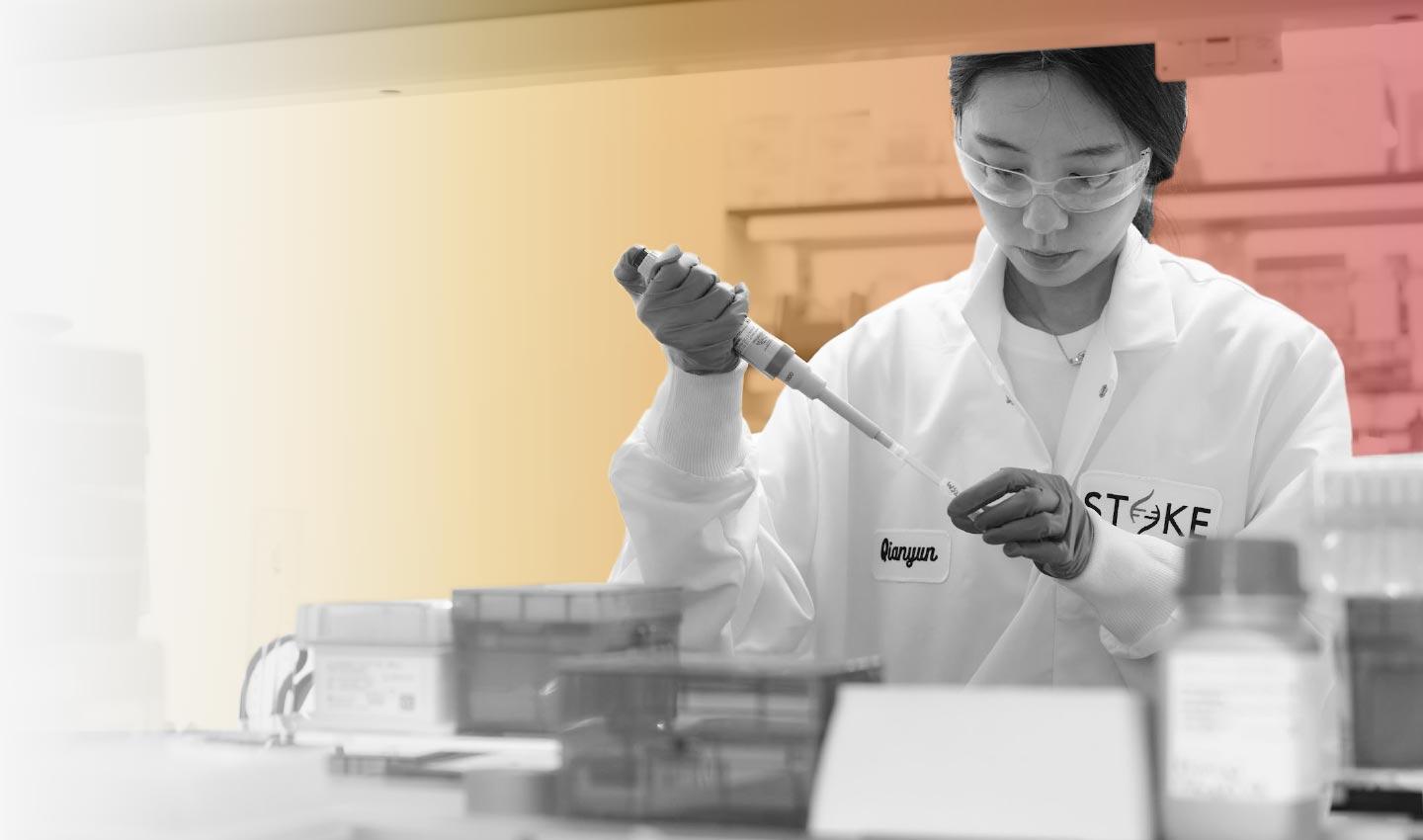
What is TANGO?
TANGO (Targeted Augmentation of Nuclear Gene Output) is Stoke’s proprietary research platform. Stoke’s initial application for TANGO is diseases in which one copy of a gene functions normally and the other is mutated, also called haploinsufficiences. In these cases, the mutated gene does not produce its share of protein, so the body does not function normally. Using TANGO and a deep understanding of RNA science, Stoke researchers design antisense oligonucleotides (ASOs) that bind to pre-mRNA and help the target genes produce more protein. TANGO aims to restore missing proteins by increasing – or stoking – protein output from healthy genes, thus compensating for the non-functioning copy of the gene.
How TANGO Works
We are targeting genetic diseases in which the patient has one functional copy of the gene and one mutated copy. As a result, the patient is producing only half as much protein as is needed to maintain health.
These genes are transcribed into pre-messenger RNA, or pre-mRNA.
Most pre-mRNA are processed to generate productive mRNA and become a template for protein production. Some pre-mRNA, however, are processed to generate non-productive mRNA. It’s normal to have both types of mRNA in the cell.
The non-productive mRNAs are degraded and do not generate protein. Only the productive mRNA from the functional copy of the gene produces any of the needed protein.
Stoke Science in Action
We synthesize small fragments of modified RNA, known as antisense oligonucleotides (ASOs), that are designed to bind to specific stretches of pre-mRNA. Preclinical studies have shown that application of our ASO therapy reduces the synthesis of non-productive mRNA and increases the synthesis of productive mRNA. The increased levels of productive mRNA from the functional copy of the gene result in increased protein production, thereby restoring the target protein to near normal levels. Stoke’s ASOs have demonstrated dose-dependent reductions in non-productive mRNA and increases in both productive mRNA and protein levels from genes of diverse size, type and function.
Our Proprietary Bioinformatics
We have identified approximately 1,200 monogenic diseases and approximately 6,500 additional genes with RNA target signatures which we believe to be amenable to TANGO. We use next generation whole transcriptome RNA sequencing and a proprietary bioinformatics analysis to identify the most promising genes quickly.
In addition to exclusively licensing foundational TANGO patents from Cold Spring Harbor Laboratory and the University of Southampton, we have also filed patents around our top drug targets, providing us with an intellectual property estate that includes both TANGO technology and genetic targets.

